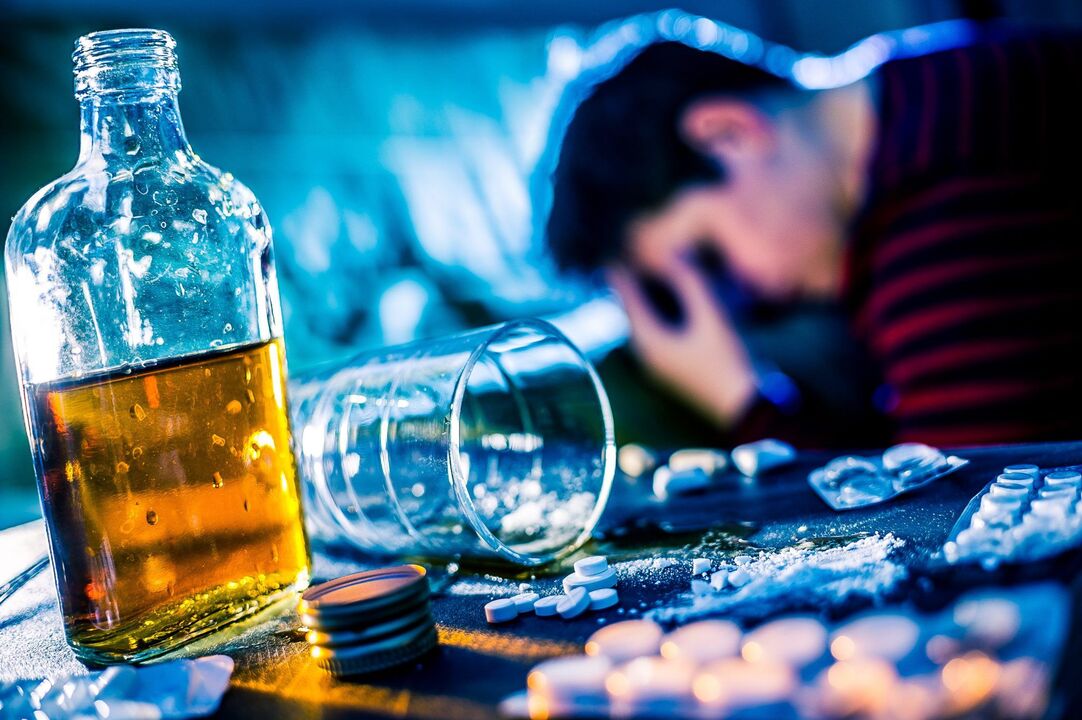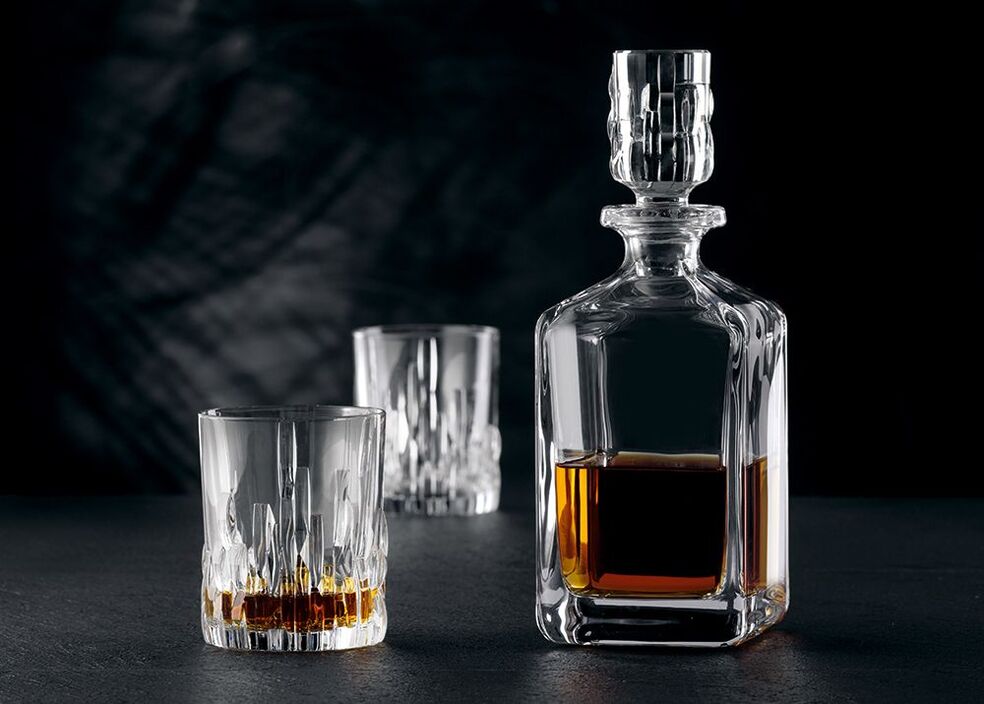Classification of alcohol hazards
- Low content - beer, wine;
- High - vodka, sugar cane rum, gin, grain whiskey, grape brandy, etc.
- Mainly grapes - cognac, wine, Italian grappa;
- Grains – whiskey, beer group, vodka;
- Fruits and Berries – Apple Calvados, liqueurs, liqueurs;
- Herbs - balsamic, rum, tequila, absinthe.
- High – 67% to 96% of container volume;
- Normal - from 31 to 66;
- Average - from 9 to 30;
- Low - from 1. 5 to 9.
Characteristics of less harmful alcohol
- the extent of its quality.
- Amount of ethanol.
- Add seasonings.
- Performance.
- Contains low calories;
- Does not contain harmful carbonyl groups;
- The simplicity of alcoholic liquids – water and alcohol.
Consuming high-quality products rarely causes a hangover. But that doesn’t mean you can drink vodka without restraint. To prevent poisoning, snacks should be mainly fatty foods.

Negative effects on human body

- Poisoning disrupts the flow of oxygen to the brain, causing brain cells to die. After encephalopathy occurs, this change is irreversible.
- The cardiovascular system is affected. Pathological development: ischemic hypertension, cardiomyopathy. For some people, alcohol addiction can cause an enlarged heart.
- Respiratory rate increases, tuberculosis and chronic bronchitis occur.
- As the mucous membranes are affected by poisons, the functions of the digestive system are disrupted. The patient was diagnosed with gastritis and peptic ulcer. Alcohol damages the liver, leading to cirrhosis and alcoholic liver disease.
- Disturbances in excretory function. Alcohol is harmful to the kidneys because under its influence the kidney epithelium is destroyed.
- Endocrine glands are affected. Almost half of alcoholics experience decreased sexual function. Against this background, neuroses, depression and other diseases of the central nervous system appear. For women, the menstrual cycle is disrupted, menopause occurs prematurely, and gestation syndrome and miscarriage may occur during pregnancy.
- Skin and muscle tissue are depleted, and various skin diseases appear.
- The hematopoietic process is disrupted, the production of lymphocytes is reduced, and allergic reactions occur.
- Psychiatric abnormalities occur: convulsions, hallucinations, and partial loss of sensation in the limbs.
Regular alcohol consumption can shorten life expectancy and lead to premature aging and disability.
Does harm depend on alcohol content?
Therefore, products containing large amounts of ethanol are considered the most dangerous.
How to choose the least harmful alcohol
- Quality (manufacturer, compliance with established safety requirements, bottling, transport and storage conditions);
- Strength (amount of ethanol in the composition);
- the availability and range of flavoring additives;
- The rate at which alcohol is absorbed into the blood.
How harmful are inferior raw materials?

What is the difference between expensive wine and cheap wine?

spiritual world
| Classification | scroll |
| Brandy, whiskey, ethyl (medicinal) alcohol, sambuca, rum, vodka, absinthe, tequila, gin, cognac | |
| medium strength drink | Vermouth, various wines, liqueurs, ciders, martinis, punches, spirits |
| Low alcohol (and carbonation) | Ales, beer products, sparkling wine and champagne |
The harm of alcohol has nothing to do with the degree. Even light alcoholic beverages can cause binge drinking.
No. 1: Alcoholic energy drinks
- Aggressive behavior of aggression.
- Suicide attempts, most of which were successful.
- Injury rates increase. Fans of alcoholic energy cocktails are more likely to be involved in a traffic accident than fans of "pure" alcohol.
Second Place: Alcoholic Cocktails
- Immediately absorbed into the bloodstream;
- Cause severe poisoning;
- Increases sugar concentration in the body;
- leading to severe hangover;
- Significantly increases the load on almost all internal organs.
Even a small alcoholic cocktail can put a triple strain on the body. The more of these drinks a person drinks, the more pronounced his hangover syndrome becomes.
Third place: Champagne and sparkling wine
- Premium champagne contains a lot of sugar. It has extremely negative effects on the function and condition of the liver and pancreas.
- Once in the gastrointestinal tract, this drink causes a rapid putrefactive process, including the remains of undigested food. Champagne owes this process to the carbon dioxide it contains.
Fourth place: Beer
The phytoestrogens contained in beer are plant analogs of female sex hormones. These compounds are extremely dangerous to both men and women. They wreak havoc on the hormonal system.
- "Live" beer is considered the "cleanest", is high in calories and can quickly lead to obesity;
- Inhibits the production of natural sex hormones, which negatively affects the functioning of the reproductive system;
- Causes overall changes in the thickness and structure of the myocardium, thereby causing the occurrence of various heart diseases.
Fifth place: Cognac
- Stabilize high blood pressure;
- Block the pathogenic activities of viruses.
Sixth place: Liqueur
Seventh place: wine
Women are advised to drink high-quality red wine (strictly limited quantities) as this alcohol is rich in antioxidants and protects the body from aging.
Eighth place: Vodka
- minimum caloric intake;
- Completely free of carbohydrates;
- Ingredient purity, vodka consists of a mixture of water and alcohol.
Consequences of drinking alcoholic beverages

- Confused speech and consciousness;
- Hearing and vision loss, hallucinations;
- Red blood cells adhere to each other, causing anemia;
- drowsiness;
- Vomiting, diarrhea, nausea;
- Headache, tinnitus;
- Difficulty with natural physiological processes (breathing, urination, etc. );
- memory loss;
- Aggressive attacks, euphoria, sudden changes in mood.
- Internal organ disease, chronic poisoning of the body;
- Spinal cord injury, atrophic heart disease, stroke;
- cancer of the larynx, stomach, liver, and colon;
- hormone imbalance;
- Erectile dysfunction, infertility, early menopause, etc. ;
- Lack of B vitamins, calcium and zinc.
- Crisis in relationships with family, friends, and colleagues;
- employment and work difficulties;
- Have violent tendencies and aggressive behavior;
- The development of psychotic disorders, including severe psychosis, personality disorders, and manic states.
Impact speed
| "quickly" | This includes hard liquor (400 proof and above) such as vodka, tequila, absinthe, etc. |
| "slow" | Low-alcohol cocktails, champagne, beer and wine act more slowly. |
in conclusion
- Persons under 18 years of age;
- Pregnant and nursing women and couples planning a pregnancy.































